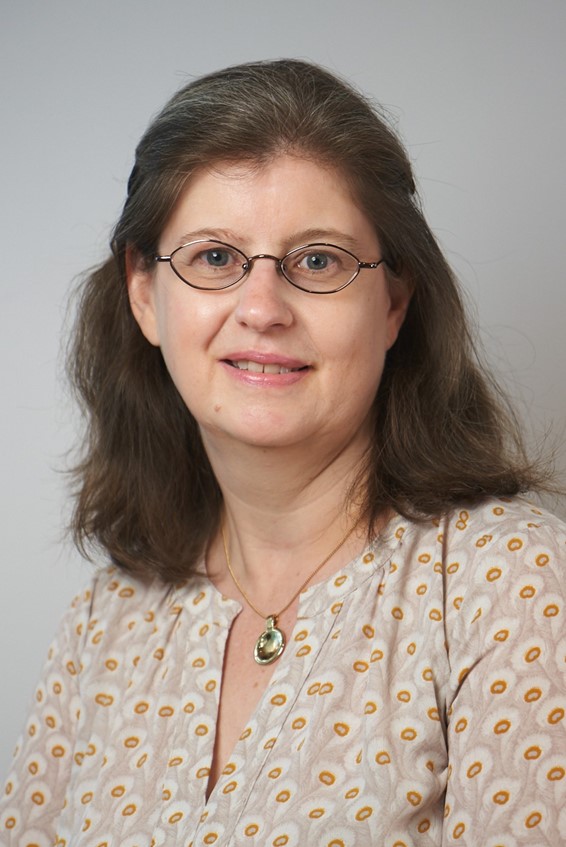Public Health Thank You Day Interview Series: Eli Briggs, Public Policy Director

In honor of Public Health Thank You Day, Research!America is putting a spotlight on public health professionals who are working to mitigate disasters, prevent disease, and advocate for public health legislation that results in equitable health solutions for communities across the country.
Eli Briggs, MA, Director of Public Policy, Infectious Diseases Society of America, shares details of her role liaising between infectious disease experts and the federal government and what preparation for the next infectious disease outbreak entails.
How did you become interested in public health?
I first became involved in health policy. While I don’t have public health training, I do have a public policy background. I started working on health policy with the National Rural Health Association, where I became familiar with rural inequities and the community health perspective – that health is everything. Almost everything we do affects our health in some way. That’s when I decided not to focus only on the health care system but all parts of the community that affect people’s health.
What does it mean to work in public policy?
Public policy is an integral part of public health. To deal with the social determinants of health and the systemic and structural factors that affect people’s health, we have to look at policy instead of working one person at a time. The public health perspective looks at the whole community, and the policies in place can really affect people.
We’ve seen this in the last year. The policies that are or are not enacted – or are or are not enforced – can have a huge impact on health.
What is a typical day for you?
There is no typical day for me. I’ve recently joined the Infectious Diseases Society of America (IDSA), where I liaise between everyone who keeps the public safe from infectious disease – like clinicians, public health experts, epidemiologists, laboratory scientists – and the federal government, including the CDC, FDA, NIH, and more. I write letters, hold meetings with policymakers and IDSA members, and write responses to proposed regulations.
As a society, we have priorities that we bring forward to the federal government, but we also do a great deal of responding to the outbreak or issue of the moment, like in the case of COVID or monkeypox.
How has your role and the role of public health changed over the course of the COVID-19 pandemic?
Even though I’ve been doing public health for years, I’ve become aware in new ways of the importance of the work that public health practitioners do every day at public health departments and health care settings and the many public health roles.
The political polarization has also changed. Public health was somewhat political before the pandemic, but COVID has taken it to a new level. It’s both frustrating and disappointing.
How do you build trust/maintain relationships with the different groups and people you work with?
I work with people who are on the front lines. Many IDSA members are physicians or other clinicians who see patients every single day. Their experience gives them credibility. The country is having a debate about infectious diseases, but after talking to the experts on the front lines, you cannot deny that they are happening.
There is also a huge crisis in antibiotic resistance that must be addressed. As we figure out how to deal with it, credibility and trust comes from the well-respected experts that can provide solutions.
Do you incorporate a health equity approach or specific initiatives that advance health equity? If so, how?
I have a strong personal commitment to addressing health equity, and a few years back, IDSA made a commitment to inclusion, diversity, and equity, from leadership all the way down. We try to infuse it into all our programs and communications.
When I’m writing something for Congress or the administration, I incorporate the equity perspective. We need to think about how policies that are put into place affect everyone, not just the people most equipped to deal with infectious diseases … It’s important to consider the inequities from racism, sexism, and other factors that limit people’s health.
Where do you see the greatest need for improvements?
There is a real workforce challenge across health care and public health. Studies show that 80% of counties across the United States do not have an infectious diseases clinician. IDSA just released a report with Johns Hopkins University showing that throughout the pandemic, physicians or other clinicians with expertise in infectious disease were doing over 20 hours a week of uncompensated work, whether consulting with other physicians or consulting with community businesses, schools, and institutions of faith. Because the workforce is limited, the infectious disease experts who are out there are taking on extra work. Workforce has to be a top priority.
What role can the public play to strengthen the future of public health? What do you want the public to know?
There is so much I want the public to know! People now have a much greater understanding of what an infectious disease outbreak is since the pandemic. I wish people understood that it doesn’t have to be as bad as it was during COVID. We have strategies that we can use so that an outbreak is not so devastating, in deaths, in hospitalizations, and in impact.




